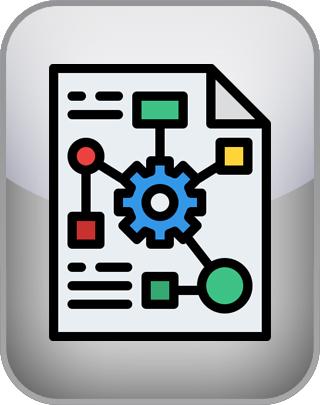Dysfunctional Schema Test
Based on the research of Dr. Jeffrey Young, Ph.D.
The dysfunctional schema test, based on the work of Dr. Jeffrey Young, serves as a vital tool in understanding and addressing early maladaptive schemas that develop from unmet childhood needs. Schema therapy, pioneered by Dr. Young, integrates cognitive-behavioral techniques with psychodynamic and experiential approaches to help individuals identify and transform these deeply ingrained patterns of thought and behavior.
To take the test, enter your input below.
Question 1 of 90
When it comes to work or studies, I am not as quick-witted as most people.
| Disagree | Agree |
NEXT
The Dysfunctional Schema Test was developed by IDRlabs, based on the research of Dr. Jeffrey Young.
Jeffrey Young has made significant contributions to the field of psychology through the development of schema therapy, an integrative approach designed to address deep-rooted emotional issues and maladaptive patterns that stem from unmet childhood needs. His work has transformed the understanding and treatment of various mental health disorders, particularly personality disorders, by emphasizing the importance of early maladaptive schemas (EMS).
Development of Schema Therapy
Schema therapy emerged in the early 1990s when Young sought to enhance traditional cognitive-behavioral therapy (CBT). He recognized that while CBT was effective for many patients, it often fell short for those with chronic psychological issues. This realization prompted him to explore the underlying causes of these persistent problems, which he found were often linked to unresolved childhood experiences and unmet emotional needs. Young's approach integrates elements from various therapeutic modalities, including psychoanalysis, attachment theory, and Gestalt therapy, creating a comprehensive framework that addresses both cognitive and emotional dimensions of psychological distress.
Early Maladaptive Schemas
Central to Young's schema therapy is the concept of early maladaptive schemas—self-defeating emotional and cognitive patterns formed during childhood in response to adverse experiences. Young identified 18 specific schemas organized into five domains: Disconnection/Rejection, Impaired Autonomy and Performance, Impaired Limits, Other-Directedness, and Overvigilance/Inhibition. Each schema reflects unmet core needs such as safety, love, and acceptance, which can lead to chronic emotional difficulties if not addressed.
Integration of Experiential Techniques
One of Young's notable innovations was the incorporation of experiential techniques into therapy. He recognized that traditional cognitive approaches often neglected the emotional aspects of healing. By using techniques such as imagery, role-playing, and emotionally expressive exercises, he facilitated profound emotional catharsis for clients. This experiential work allows individuals to re-experience painful memories in a safe environment, enabling them to articulate and process buried feelings that contribute to their maladaptive schemas. This shift towards a more holistic therapeutic approach has proven particularly beneficial for individuals with complex psychological issues.
Impact on Personality Disorders
Young's schema therapy has been especially influential in treating personality disorders, notably Borderline Personality Disorder (BPD). Research has demonstrated schema therapy's efficacy in this area, establishing it as an evidence-based treatment option for BPD and other chronic conditions such as PTSD and eating disorders. The framework developed by Young has paved the way for numerous studies confirming its effectiveness across a wide range of diagnoses.
Emphasis on Therapist Self-Insight
Another critical aspect of Young's work is his emphasis on the therapist's self-awareness and personal growth. He advocates that therapists must explore their own emotional histories and unresolved issues to avoid projecting them onto clients. This self-insight is essential for fostering a therapeutic relationship that is both effective and safe for clients. By encouraging therapists to engage in their own schema work, Young has contributed to a more reflective practice within the field.
Jeffrey Young’s contributions to psychology through schema therapy represent a significant advancement in understanding and treating complex emotional issues rooted in childhood experiences. His integrative approach not only enhances therapeutic outcomes for individuals with chronic psychological problems but also enriches the broader landscape of mental health treatment by emphasizing the interplay between cognition and emotion. As research continues to validate his methodologies, Young’s work remains a cornerstone in the evolution of psychotherapy.
As the publishers of this free test, which allows you to screen yourself for dysfunctional schemas, we have strived to make the test as reliable and valid as possible by subjecting this test to statistical controls and validation. However, free online quizzes such as the present test do not provide professional assessments or recommendations of any kind; the test is provided entirely “as-is.” For more information about any of our online tests and quizzes, please consult our Terms of Service.

